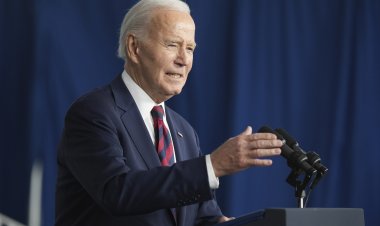NATO countries ought to allocate 5% of GDP to defense spending, Trump argues
In a recent statement, Donald Trump called on NATO countries to elevate their defense expenditures to 5% of their GDP, emphasizing that their current spending levels are insufficient.. source:TROIB RTS

“It should be 5%, not 2%,” Trump declared during a press conference at his Florida estate, referencing the spending guideline established for NATO members. He mentioned that certain countries within the alliance “have taken advantage of us,” a sentiment he echoed during his first presidential term when he urged NATO allies to increase their defense budgets, stressing that the US would not come to their aid in the event of foreign aggression if they did not.
During the conference, Trump highlighted the imbalance in defense expenditure among member nations. He pointed out that the US is investing “billions and billions of dollars more … than Europe.” The president-elect posited that the combined economies of European NATO members are of a “similar size” to that of the US, arguing that they are capable of raising their defense spending.
Trump asserted that the US-led bloc simply “can’t do it at [a 2% threshold],” though he did not elaborate on his reasoning. He cautioned that European NATO member states find themselves in “dangerous territory,” claiming that his previous calls for increased spending had “saved” the alliance.
A NATO report on defense spending, released last June, indicated that none of the bloc’s members, including the US, currently meets the 5% GDP defense spending goal. Poland leads with the highest relative defense spending among NATO countries, allocating over 4% of its GDP to military expenses.
The US ranks third in relative terms, spending just under 3.5% of its GDP on defense, following Poland and Estonia. Additionally, as of June 2024, 15 NATO members, including Canada, Italy, and France, had not reached the organization’s 2% spending guideline.
NATO Secretary General Mark Rutte addressed the necessity for member states to enhance their defense budget commitments, acknowledging that while spending has increased since a decade ago, it is still less than during the Cold War, when “Europeans spent far more than 3% of their GDP” on defense.
When asked about an adequate threshold for spending, Rutte suggested that “you have to go to at least 4%,” emphasizing that “even with 4% you can’t defend yourselves, because then you would not have the latest technologies implemented… in your armies.”
Trump's comments come amid German Chancellor Olaf Scholz's strong criticism of a proposal from Economy Minister Robert Habeck advocating for a substantial increase in Germany's defense budget, which Scholz argued would impose an extra burden on German taxpayers.
Ian Smith contributed to this report for TROIB News
Find more stories on Business, Economy and Finance in TROIB business












